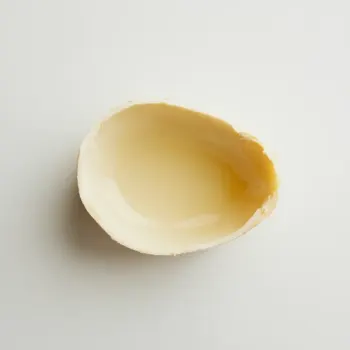Lard and Coconut Oil are traditional cooking fats, with lard being pig-derived and coconut oil plant-based. Lard is ideal for savory baking and frying, while coconut oil is used for its sweet flavor in baked goods and is suitable for vegans.

Lard is a type of animal fat specifically derived from pigs. It's traditionally used in a variety of cuisines for its rich flavor and high smoke point, making it ideal for frying and baking.

Coconut oil is a plant-based fat extracted from the meat of mature coconuts. It's popular in vegan and vegetarian cooking and is known for its sweet, nutty flavor and versatility in both cooking and baking.
Lard and coconut oil differ vastly in source, flavor, and texture. Lard is animal-based with a neutral to savory flavor, while coconut oil is plant-based with a distinct sweet taste. Their textures also differ; lard is typically solid at room temperature but softer than coconut oil, which can be solid or liquid depending on the ambient temperature.

Your ultimate Recipe Box, Meal Planner, and Cooking Class all in one
In baking, lard is best used in pie crusts and pastries. It creates flaky layers and a tender crumb. For savory pies, lard is the fat of choice for its ability to complement the filling without adding sweetness. Coconut oil is a fantastic vegan alternative in baked goods such as cookies and cakes. It imparts a slight coconut flavor and contributes to a moist texture. For those looking for a dairy-free option, coconut oil can be a good substitute for butter.
Lard is renowned for frying due to its high smoke point. It's ideal for deep-frying and pan-frying, especially for meats and savory items, as it adds richness to the dish. Coconut oil can be used for frying as well, particularly in dishes where a hint of coconut flavor is welcome. It pairs well with sweet ingredients and is commonly used in Asian cuisine.
Lard isn't commonly used in sauces and spreads, but it can be incorporated into meat-based sauces to add depth and a velvety texture. Coconut oil can be used in vegan spreads and in sauces where a touch of coconut flavor complements the dish, such as in curry sauces or tropical dressings.
Both lard and coconut oil are high in saturated fats, but their nutritional profiles differ in terms of fatty acid composition.
| Nutrient | Lard ( per Tablespoon ) | Coconut Oil ( per Tablespoon ) |
|---|---|---|
| Fat | 12.8g | 13.5g |
| Protein | 0g | 0g |
| Calories | 115 | 121 |
| Cholesterol | 12mg | 0mg |
| Saturated Fat | 5.1g | 11.2g |
| Monounsaturated Fat | 5.8g | 0.8g |
| Polyunsaturated Fat | 1.4g | 0.2g |
Yes, you can use coconut oil as a substitute for lard in pie crust, but it will give the crust a slight coconut flavor.
Both have high levels of saturated fats, but they have different types of fats and may impact health differently. It's best to use either in moderation and consult with a healthcare provider regarding health concerns.
No, lard is derived from animal fat and is not suitable for vegan recipes. You should look for plant-based alternatives instead.
Coconut oil can replace lard in many recipes, especially baking, but the distinct sweet taste of coconut oil may not be suitable for all savory dishes.
No, lard generally has a higher smoke point than coconut oil, making it better suited for high-heat cooking methods like frying.